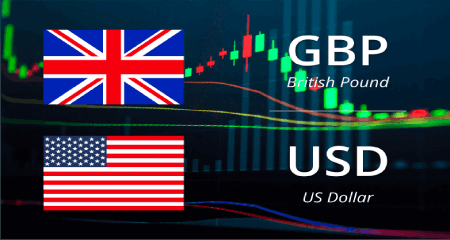
GBP/USD met with a fresh supply on Tuesday
The GBP/USD pair witnessed some selling on Tuesday and snapped a four-day winning streak amid resurgent US dollar demand. The intraday pullback from the vicinity of over a one-month high extended through the European session and dragged spot prices to a fresh daily low, around the 1.2585 region. The overnight hawkish comments by Fed Governor Christopher Waller triggered a fresh leg up in the US Treasury bond yields, which, in turn, assisted the USD to make a solid comeback. Speaking at an event in Frankfurt, Waller backed a 50 bps rate hike for several meetings until inflation eases back toward the central bank’s goal. This, along with the risk-off impulse, offered additional support to the safe-haven buck and exerted downward pressure on the GBP/USD pair.
The market sentiment remains fragile amid doubts that central banks can hike interest rates to curb inflation without impacting economic growth. The worries resurfaced following the release of official Chinese PMIs, which showed that business activity in both manufacturing and services sectors contracted in May. Furthermore, concerns that the global supply chain disruption would push consumer prices even higher, tempered investors' appetite for riskier assets.
On the other hand, the British pound was pressured by worries about the cost of living crisis, which the Bank of England cautioned could push the UK into recession later in 2022. Adding to this, the British government's legislation - that would effectively override parts of a Brexit deal - has raised fears about a trade war. This, along with expectations that a jumbo rate hike by the BoE would take its toll on the UK economy, adds to the grim outlook for sterling. The fundamental backdrop seems tilted in favor of bearish traders and supports prospects for a further near-term depreciating move. That said, investors might refrain from placing aggressive bets ahead of this week's release of important US macro data, scheduled at the beginning of a new month, including the closely watched NFP report.
On the other hand, the British pound was pressured by worries about the cost of living crisis, which the Bank of England cautioned could push the UK into recession later in 2022. Adding to this, the British government's legislation - that would effectively override parts of a Brexit deal - has raised fears about a trade war. This, along with expectations that a jumbo rate hike by the BoE would take its toll on the UK economy, adds to the grim outlook for sterling. The fundamental backdrop seems tilted in favor of bearish traders and supports prospects for a further near-term depreciating move. That said, investors might refrain from placing aggressive bets ahead of this week's release of important US macro data, scheduled at the beginning of a new month, including the closely watched NFP report.
